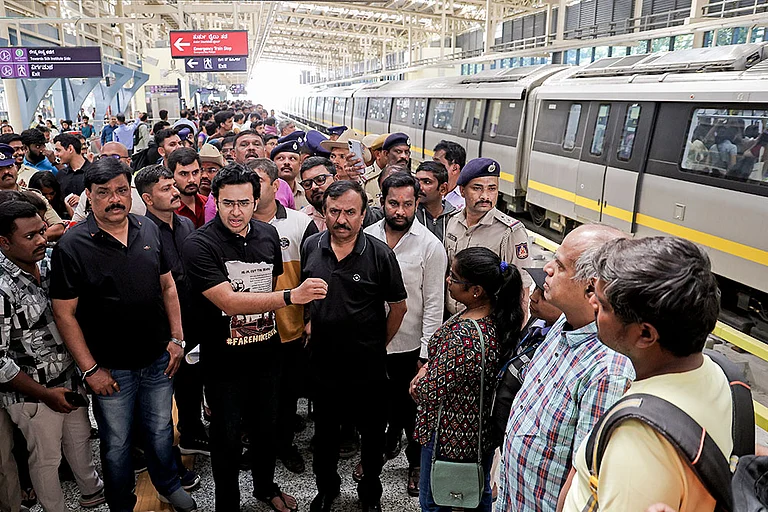HAGIOGRAPHY also has a role in history. And so this tribute by an acolyte to his herois to be welcomed. Dr Shyama Prasad Mookerjis was a short life. While his electionto the Calcutta University senate at the age of 23 and his elevation to thevice-chancellorship had everything to do with his being Sir Ashutosh Mookerjis son,the credit for his remarkable political career must go to him alone. He battled SubhasChandra Bose on his home turf and Nehru on the national scene. Had he lived longer, hemight have realised his full potential, but the party he founded in 1951, the BharatiyaJana Sangh, has, in its present incarnation as the Bharatiya Janata Party, been the leaderof the ruling coalition for the last three years. Cause enough for a centenary biography.
To describe Mookerji as a patriot is like describing Madhuri Dixit as a woman.Self-evident. But patriotic to whom? All of India, or to a part? Mookerji answered thiswhen, on taking to active politics at the age of 38, he chose to join the Hindu Mahasabhain preference to the Congress.
There were two possible reactions to the communalism of the Muslim League: either arival Hindu communalism or an unbending secularism. Gandhi and Nehru chose the latter.Gandhi realised, as Mookerji did not, that most Indians, and Hindus, shied away fromimitative or vengeful communalism as the answer to the Muslim League. This was scorned asappeasement by Mookerji, the rss and the Hindu Mahasabha.
It is, therefore, ironic that Mookerji got his first cabinet position, as financeminister of Bengal, under Fazl-ul-Haq. It set the tone for all the other unlikelycoalitions into which Mookerjis party has entered in its quest for power. They havenever come to power on their own. Why?
Because, on a basic level, Mookerji and others of his ilk were and are confusedIndians. Mookerji thrilled in being Indian but to him India was synonymous with apre-colonial past. And since, in his view, the colonisation of India began not with theBattle of Plassey but with Mohammad-bin-Qassim, his concept of Bharatiyasanskriti was limited to what ancient India had to offer. And it was to theirconception of Bharatiyata that the minorities were asked to subscribe, failing which, inthe eyes of men like Mookerji, they failed the loyalty test.
Mookerji laid the entire blame for Partition on the Congress, being particularlyvenomous about Maulana Azad. He never asked himself whether Indias independencecould be indefinitely postponed till the British were satisfied that the Muslims wouldaccept freedom without Partition. Mookerji quit his ministry in 1950 over Nehruspacts with Pakistan about the treatment of Hindus in East Pakistan. It is never clear whatalternative Mookerji had. If his solution was war and conquest, Mookerji shied away fromsaying so. He wanted an economic boycott and othermeasuresas if the whole western world were not waiting to rush toPakistans aid if India moved on sanctions. He did not want the voice of SheikhAbdullah or the Kashmiri Muslim to be heard. For him, it was enough that JammusPraja Parishad leader wanted full integration.
The biggest disappointment in the book is the terse reference to the six hours ofdiscussion that took place between Mookerji and Sheikh Abdullah in Srinagar. The authormerely says he does not know what exactly transpired.
The last chapter is a moving account of Mookerjis last journey (in a compartmentoccupied by Atal Behari Vajpayee among others) and his mysterious death in Srinagar underdetention. That is a murky tragedy which needs clearing up, but according to Madhok,Mookerji had suffered his first heart attack seven years earlier. That, not the perfidy ofSheikh Abdullah, might be all there is to Mookerjis sudden but sad passing away.























